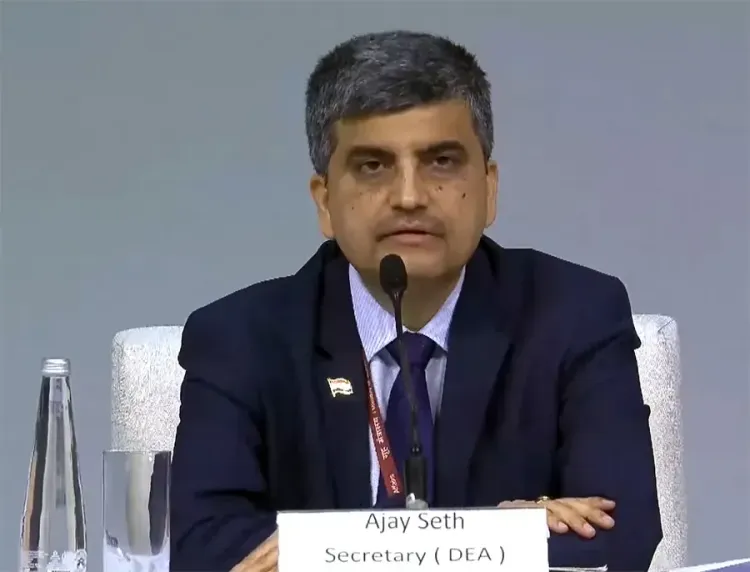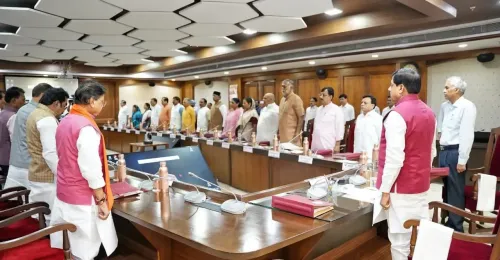Ajay Seth named as Finance Secretary

Synopsis
Key Takeaways
- Ajay Seth appointed as Finance Secretary.
- Previously served as Secretary of the Department of Economic Affairs.
- Holds degrees from IIT Roorkee and Ateneo de Manila University.
- Recognized for enhancing Karnataka’s tax administration.
- Finance Secretary role vacant after Tuhin Kanta Pandey moved to SEBI.
New Delhi, March 24 (NationPress) Ajay Seth, an IAS officer from the 1987 batch of the Karnataka cadre, has been officially appointed as the new Finance Secretary as per a recent government order.
Currently, Seth serves as the Secretary of the Department of Economic Affairs within the Finance Ministry.
The Appointments Committee of the Cabinet has sanctioned Seth's new role, as stated in the announcement from the Personnel Ministry.
In accordance with established practices, the most senior secretary in the Union Finance Ministry is typically assigned to the Finance Secretary position.
Earlier this month, Seth also took on the additional responsibilities of the Revenue Secretary.
He holds a B.Tech degree in Mechanical Engineering from IIT Roorkee and an MBA from Ateneo de Manila University, and he began his role as Secretary of the Department of Economic Affairs in April 2021.
With over three decades of experience in public finance and social sector administration, his background includes budgeting, tax policy development, foreign investments, and both bilateral and multilateral financial cooperation.
Seth has been acknowledged for his contributions to the enhancement of Karnataka’s commercial tax administration, earning the Prime Minister's Award for Excellence in Public Administration in 2013.
The position of Finance Secretary became vacant following the recent appointment of Tuhin Kanta Pandey as the Chairman of the Securities and Exchange Board of India (SEBI).
Pandey concluded his term as Finance Secretary and Secretary of the Department of Revenue, where he played a pivotal role in crafting the Union Budget that introduced a significant measure exempting individuals earning up to Rs 12 lakh annually from income tax to stimulate demand and foster economic growth.
He was also instrumental in formulating the new Income Tax Bill, which was aligned with global best practices, aimed at simplifying the language and structure of the Income-tax Act, 1961, effectively reducing its length by nearly 50 percent.









